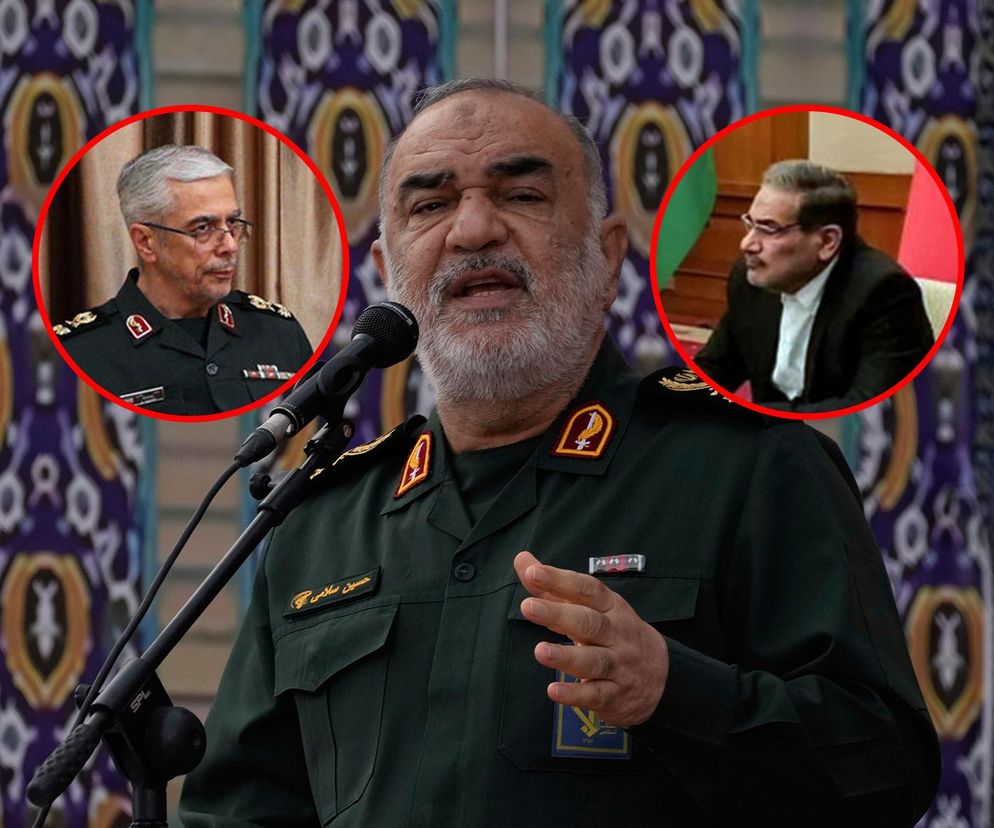NEWS
Israel Attacks Iran, Key Commanders and Scientists Killed. What Does This Mean?

The Israeli attacks on Iran have sent shockwaves through the Iranian chain of command. Several influential generals, including a military commander and the leader of the Islamic Revolutionary Guard Corps, have been killed. Iranian nuclear facilities and air defenses have also been attacked. Iran’s Supreme Leader, Ayatollah Ali Khamenei, has vowed harsh punishment for Israel.
Series of Israeli attacks on Iran – what happened?
On Friday (June 13), a series of Israeli attacks took place on Iranian territory. The targets included not only military facilities but also the homes of high-ranking commanders. The attacks constitute a significant escalation of the conflict between the two countries.
According to four Iranian officials quoted by The New York Times, Israel has attacked at least a dozen military bases, missile depots, nuclear and missile facilities in several Iranian cities, including Tehran, Tabriz, Isfahan, Kermanshah and Arak.

Victims of the attacks – key commanders and scientists
A number of senior Iranian military commanders and scientists were killed in the attacks. The victims included:
Major General Mohammad Bagheri – Chief of Staff of the Iranian Armed Forces. According to state media, he was the most senior leader among those killed. One of his deputies was also killed.
Major General Hossein Salami – Commander of the Islamic Revolutionary Guard Corps. Killed in an Israeli airstrike in Tehran, along with many other members of the security body.
Ali Shamkhani – Former senior naval commander, one of Iran’s most influential politicians and a close confidant of Khamenei. Died from injuries sustained in an attack on his Tehran apartment.
General Gholamali Rashid – Senior leader of the Iranian Armed Forces.
Mohammad Mehdi Tehranji – Iranian physicist.
The killing of Shamkhani, who oversaw nuclear talks with the United States, could indicate a deliberate attack on nuclear diplomacy efforts.
Iranian media reported that at least 50 people were wounded in the attack north of Tehran, while five people were killed and about 20 wounded in the capital. In response, Iranian authorities appointed interim commanders Amir Habibollah Sayyari as commander of the armed forces and Ahmad Vahidi as head of the IRGC.
As the leader of the secretive Islamic Revolutionary Guard Corps (IRGC), Major General Hossein Salami was one of the most influential figures in Iran, overseeing the country’s armed forces and reporting directly to Supreme Leader Ayatollah Ali Khamenei, CNN notes. According to the U.S. sanctions registry, Salami was born in 1960 and had commanded a secret unit of the Islamic Revolutionary Guard Corps (IRGC) since 2019.
Major General Mohammad Bagheri Mohammad Bagheri has served as Iranian Armed Forces Chief of Staff since 2016.
Ali Shamkhani was a close ally of Iranian Supreme Leader Ayatollah Ali Khamenei and represented Tehran in talks that sealed a landmark agreement to restore diplomatic ties with hostile Saudi Arabia. Shamkhani served as Iran’s top national security official for a decade from 2013, after holding a number of senior posts, including in the Islamic Revolutionary Guard Corps (IRGC) and the Defense Ministry. Shamkhani represented Iran in talks with Saudi officials, which were held under Chinese auspices. After those talks, the two countries agreed to reestablish diplomatic ties after years of hostility.
Iran’s Response: Retaliation Pledged
The Iranian government condemned the Israeli attacks, calling them a “cowardly operation.” Tehran’s statement said:
We have never hesitated to defend our homeland. These Israeli attacks and the killings of our commanders prove that the Zionist regime is a terrorist entity. They only understand the language of force.”
Iran’s Supreme Leader Ayatollah Ali Khamenei has vowed harsh punishment for Israel. In a statement read on state television, he said Israel
“Should expect severe punishment. The strong hand of the Islamic Republic will not let them go.” He added that many senior military commanders and nuclear scientists were killed in the attacks, including residential cells. “The Zionist regime has prepared a dark and painful fate with this crime that will surely befall it.”
The Revolutionary Guard spokesman promised that after General Salami’s death, it would “resolutely and severely respond to the aggression of the Zionist enemy” and deal a decisive blow to Israel and the United States.
The statement added that Iran had taken “defensive, political and legal steps to ensure that Israel regrets its actions” and called on the UN Security Council to intervene.
“Revenge is near. The end of this history will be written by Iran,” the statement said.
Meanwhile, Lebanese Al Mayadeen TV, linked to Hezbollah, reported that Iran had withdrawn from another round of talks with the United States scheduled for Sunday. US President Donald Trump had earlier expressed hope for a return to negotiations despite the Israeli operation.
Reuters, citing two Israeli officials, reported that Israel is preparing for a significant Iranian retaliatory response in the coming hours, which could include the launch of hundreds of ballistic missiles.
Consequences of the attack on Iran
The killing of such influential military figures and those responsible for Iran’s nuclear program is a serious blow to Iran. Tehran did not believe that an attack by Israel could be so strong and brutal. Looking at this attack, we need to look at several issues. First, Iran’s threats against Israel: it is not known how they will be fulfilled in the near future. Iran has some military capabilities to respond to Israeli attacks, but their effectiveness depends on many factors.
Iran has one of the largest ballistic missile arsenals in the Middle East. Rockets such as Fattah-1, Khaybar Shekhan, and Sejil have a range that allows them to hit Israel (between 1,000 and 2,000 km). During the October 1, 2024 attack, Iran fired about 180 ballistic missiles at Israel, most of which were intercepted by Israeli defense systems (e.g. Arrow, David’s Sling). The effectiveness of such attacks is limited by Israel’s advanced missile defenses, supported by the US.
Iran bases its strategy on the so-called “axis of resistance,” a network of allies such as Hezbollah in Lebanon, the Houthis in Yemen, Hamas in the Gaza Strip, and pro-Iranian militias in Iraq and Syria. Hezbollah, with an arsenal of more than 150,000 missiles and drones, remains Iran’s key tool for attacking Israel. However, recent Israeli operations (such as the 2024 attacks on Hezbollah infrastructure) have weakened this capability. Hezbollah can launch missile attacks from Lebanon, and the Houthis from Yemen can attack Israeli naval targets or U.S. allies in the region (such as Saudi Arabia). However, the weakening of Hezbollah by Israeli attacks in 2024 reduces its potential.
Iran is also developing drone technology, such as the Shahed-136, which can be used to attack civilian and military targets. They are relatively cheap, but their effectiveness against Israeli defense systems is limited.
Iran is developing cyber capabilities and may attempt to attack critical Israeli infrastructure, such as power grids or financial systems. However, Israel has advantages in this area, which could limit the effectiveness of such actions.
Cessation of US-Iran talks
Israel’s attack on Iran, as well as the killing of Shamkhani, is a setback for negotiations between Iran and the US. US President Donald Trump told Fox News that he hopes to return to negotiations with Iran. He also said that the US will defend itself and Israel from Iranian retaliation.
“Iran cannot have a nuclear bomb, and we hope to return to the negotiating table. We will see. There are some leaders who will not return,” Trump told Bret Baier in a telephone interview. He was referring to Iranian military commanders killed in the Israeli attack, including the chief of staff and the commander of the Islamic Revolutionary Guard Corps.
The US president reportedly said he knew in advance that Israel intended to attack Iran, even though he had posted on social media hours earlier that he supported a diplomatic solution.
According to Fox News, the Trump administration contacted at least one key Middle Eastern ally ahead of the Israeli attack to brief it on Israel’s plans but to emphasize that the United States was not involved. The White House has also said the decision to attack Iran was a unilateral Israeli decision. Trump himself has publicly — also on Thursday — opposed the premature attack, believing it would derail diplomatic talks with Iran.
Still, the president said the US military in the region was on high alert and the United States was ready to defend itself and Israel if Iran retaliated.
The Israeli official, quoted by state broadcaster Kan, said Israel fully coordinated its actions against Iran with Washington and notified the United States before attacking Iranian targets. The Israeli newspaper Jerusalem Post reported similarly, citing an unnamed Israeli official who said: “We have presented the US administration with evidence of Iran’s groundbreaking (actions) in developing its nuclear program. There was full and complete coordination with the Americans.”
According to the unnamed Israeli official, recent reports of disagreements between Israel and Washington were false, but deliberately not denied, and were part of a disinformation campaign aimed at misleading Iran. Such a strategy may have been aimed at surprising Iran and increasing the effectiveness of the attacks.
US Secretary of State Marco Rubio issued a statement saying: “Israel has taken unilateral action against Iran. We are not involved in attacks on Iran, and our highest priority is to protect American forces in the region.” He added: “Israel has informed us that it believes this action was necessary for its self-defense. President Trump and the administration have taken all necessary steps to protect our forces and remain in close contact with our regional partners. Let me be clear: Iran should not attack US interests or personnel.”
As Middle East expert Tomasz Rydelek, creator of the Puls Lewantu blog on the X platform, notes, commenting on the whole situation:
It may not have sunk President Trump’s talks with Iran yet, but Netanyahu has just sunk his talks with Iran. Trump wanted to use Israel and the threat of an Israeli attack as leverage in talks with Iran. But the scale of the Israeli attack is so large that the door to diplomacy may be closed. The Iranians announced today that they will not participate in another round of talks with the US (…) In recent days, Trump has begun to indirectly use the threat of an Israeli attack as a means of pressuring Iran. Why? Since the Iranians rejected Trump’s latest proposal, they have begun to prolong the talks, and the chances of an agreement have generally begun to decline. Trump has decided to use the services of a man he cannot control. Trump and Netanyahu are playing for two completely different goals. Trump wants to use political pressure to force Iran to make concessions, while avoiding open conflict. Trump, the threat of an attack by Israel (without its implementation) was just a tool on the way to an agreement with Iran. From Netanyahu’s perspective, the situation looks completely different. For him, an attack on Iranian nuclear centers is the only way to solve the “Iran problem”. Moreover, from Netanyahu’s perspective, a US-Iran agreement may be even more dangerous than no agreement. Lifting sanctions against Iran and the influx of foreign investors is a direct path to strengthening both the internal situation of the Islamic Republic and its position on the international stage.”












